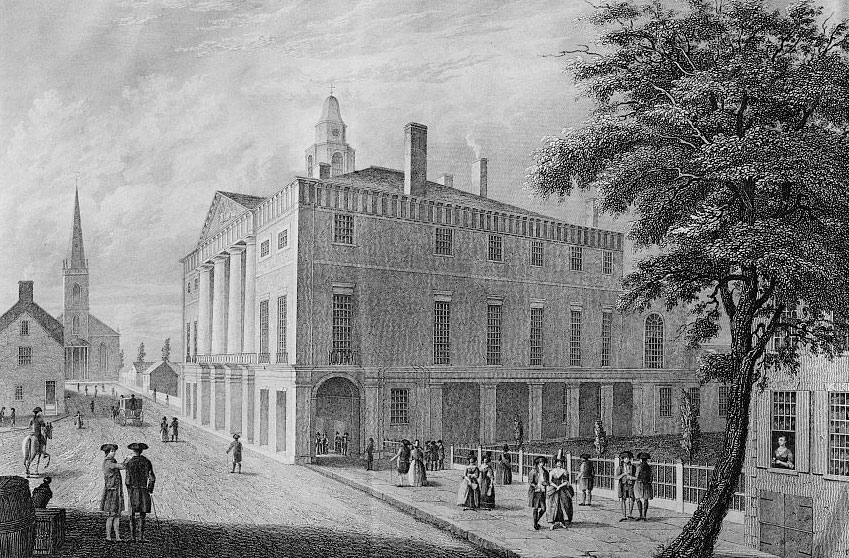cities

Throughout the nineteenth century, more Americans lived on farms and in other rural areas than in cities. Nevertheless, in the early national period, cities attracted many Americans, eager for adventure, or searching for work. There were definite benefits to living in the city. City dwellers had access to markets and shops; while those in the country and on the frontier had to rely on Yankee peddlers, many of whom were less than honest, for any supplies or services they needed. In the cities, people were exposed to more different ways of life, and were often able to obtain work in factories or shipyards. In the country, farm work was the major occupation. Land was inexpensive, plentiful and, thus, widely accessible; but it took a great deal of work for families to tame the land, especially on the frontier, to produce crops for food and for sale.
In the cities, various scientific, religious and moral societies thrived in cities like Philadelphia and Boston. The American Philosophical Society, the oldest scientific society in the US, was based in Philadelphia. Bostonians in New York even formed a New England Society, with one of its stated intentions being the establishment and maintenance of a library.
Urban entertainment was often lively, and occasionally sophisticated, with theaters, parties and dances. In New York, Philadelphia and Charleston; plays, musical events and other staged entertainment were presented. Boston had banned stage shows; but, by 1791, there was an outcry for theatrical presentations, at least those which promoted good morals. Other social activities, such as horse racing, gambling,
Despite their benefits, cities were dangerous places to live. Without indoor plumbing, Americans attended to their sanitary needs either by going outside and digging a hole, or using chamber pots and emptying them outside. Other garbage was also thrown in the streets. Since there were no Departments of Sanitation to carry garbage away, it was left to the flies and stray animals. In the cities, these poor sanitary conditions were made worse by the high concentrations of people. Fires and sickness spread easily.
 >
>